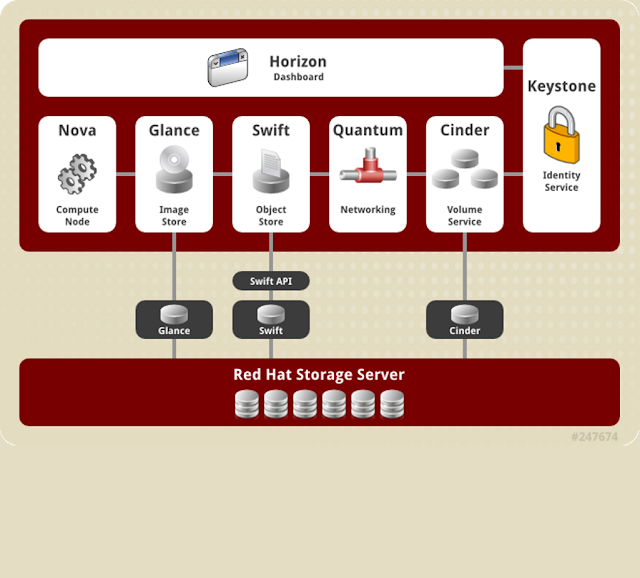This article explains you about the Red Hat Openstack Cloud Platform. We will explain you how to install, manage and troubleshoot the Red Hat Enterprise Openstack Platform in the next article.
If you are interested in learning, Request you to go through the below recommended tutorial.
DevOps Full Course Tutorial for Beginners - DevOps Free Training Online
Docker Full Course Tutorial for Beginners - Docker Free Training Online
Kubernetes Full Course Tutorial for Beginners - Kubernetes Free Training Online
Ansible Full Course Tutorial for Beginners - Ansible Free Training Online
Openstack Full Course Tutorial for Beginners - Openstack Free Training Online
Docker Full Course Tutorial for Beginners - Docker Free Training Online
Kubernetes Full Course Tutorial for Beginners - Kubernetes Free Training Online
Ansible Full Course Tutorial for Beginners - Ansible Free Training Online
Openstack Full Course Tutorial for Beginners - Openstack Free Training Online
What is Red Hat Openstack Cloud Platform?
Red Hat Enterprise Linux OpenStack Platform delivers an integrated foundation to create, deploy, and scale a secure and reliable public or private OpenStack cloud. Red Hat Enterprise Linux OpenStack Platform combines the world’s leading enterprise Linux and the fastest-growing cloud infrastructure platform to give you the agility to scale and quickly meet customer demands without compromising on availability, security, or performance.The OpenStack system consists of several components. You can install any of these components separately and configure them stand-alone or as connected entities.
Each component offers an application programming interface (API) that facilitates this integration.
Service related Components | |
Name | HORIZON |
Purpose | Dashboard |
Description | Web based management user interface for management like launching instances, managing networking and setting access controls. |
Name | NOVA |
Purpose | Compute |
Description | A service that manages networks of virtual machines running on nodes, providing virtual machines on demand. It is designed to scale horizontally on standard hardware, downloading images to launch instances as required, spawning, scheduling and decommissioning of virtual machines on demand. |
Name | NEURTON |
Purpose | Networking |
Description | A service that provides connectivity between the interfaces of other OpenStack services. Users can create their own networks, control traffic, and connect servers to other networks. Various networking technologies are supported. |
Storage related Components | |
Name | Swift |
Purpose | Object Storage |
Description | A service providing object storage which allows users to store and retrieve files. Swift architecture is distributed to allow for horizontal scaling and to provide redundancy as failure-proofing. Data replication is managed by software, allowing greater scalability and redundancy than dedicated hardware. |
Name | Cinder |
Purpose | Block Storage |
Description | It manages storage volumes for virtual machines. This is persistent block storage for the instances running in Nova. |
Shared Services related Components | |
Name | Keystone |
Purpose | Identity Management |
Description | A centralized identity service that provides authentication and authorization for other services. |
Higher Level Service Components | |
Name | Heat |
Purpose | orchestration |
Description | A service to orchestrate multiple composite cloud applications using the AWS CloudFormation template format, through both a REST API and a CloudFormation-compatible Query API. The software integrates other core components of OpenStack into a one-file template system. The templates allow creation of most OpenStack resource types (such as instances, floating IPs, volumes, security groups, users, etc.), as well as some more advanced functionality such as instance high availability, instance auto scaling, and nested stacks. |
Name | Glance |
Purpose | Image Service |
Description | A service that acts as a registry for virtual machine images, allowing users to copy server images for immediate storage. These images can be used as templates when setting up new instances. |
Name | Ceilometer |
Purpose | Metering |
Description | Monitors and meters the OpenStack cloud for billing, benchmarking, scalability, and statistical purposes. |
Hope this article gives you an idea and makes you ready to go-ahead for further deployment.
We will explain you how to deploy, manage and troubleshoot these all components in test environment to have a powerful cloud infrastructure.
Keep practicing and have fun. Leave your comments if any.
Support Us: Share with your friends and groups.Stay connected with us on social networking sites, Thank you.








0 Comments